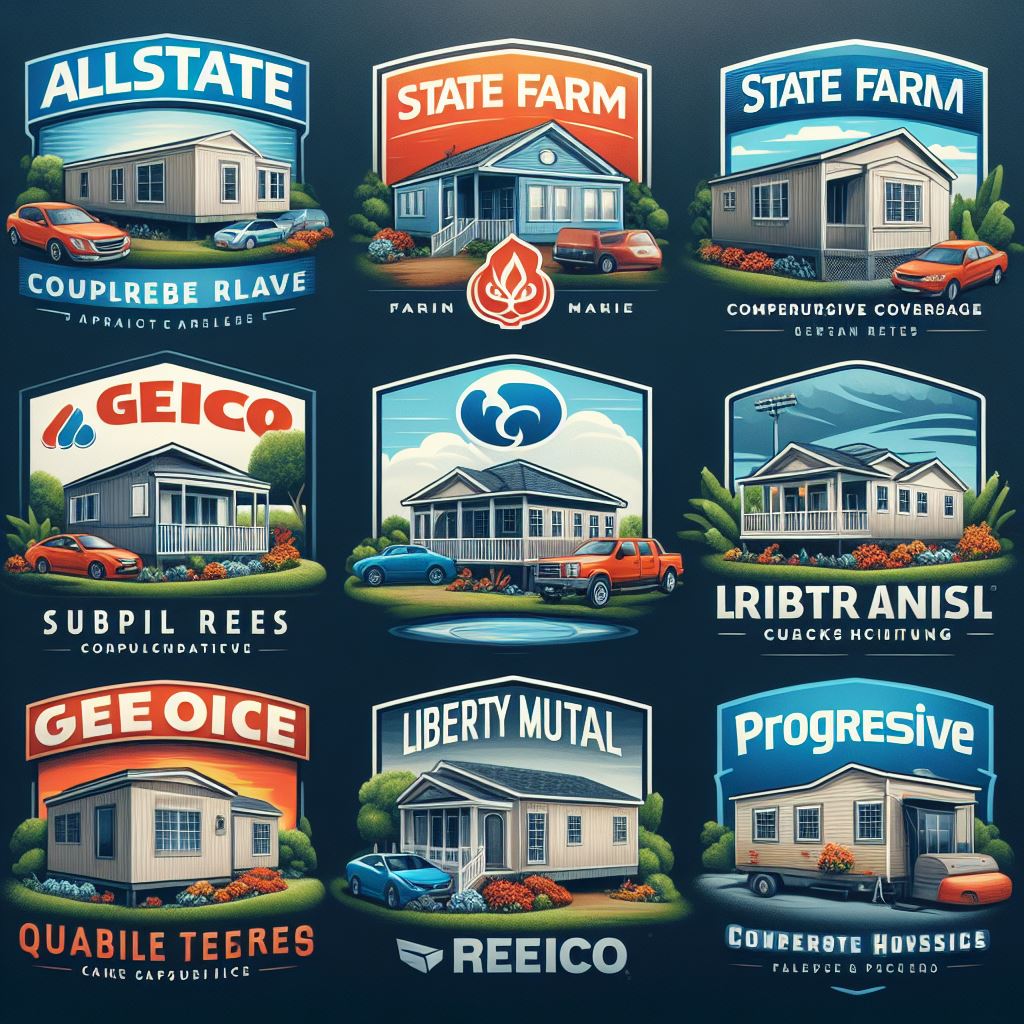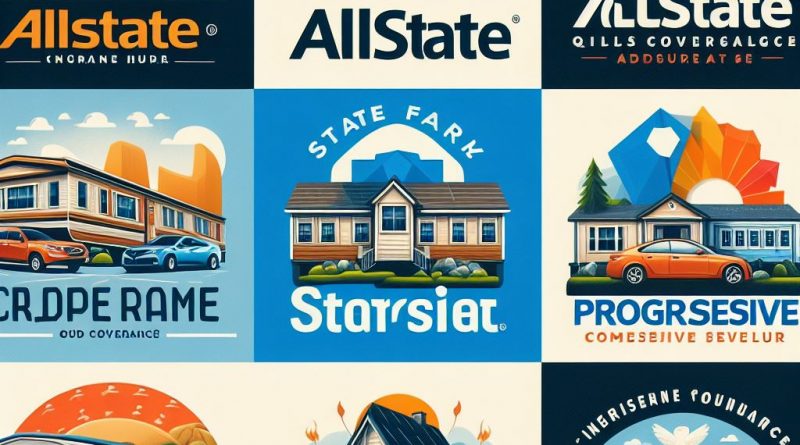The Smart Way to Choose your mobile home insurance companies
Mobile home insurance companies
For literally millions of Americans, mobile homes have given them a viable chance to have a decent house that is not rigid. Nevertheless, mobile homes are the same as stick buildings, and if you don’t choose the proper insurance to cover destructive disasters, concerns, or incidents, you’ll end up acquiring legal liabilities. At this point, mobile home insurance lenders step in with customized policies geared specifically for the residents of mobile homes. This is where the importance of insurance comes in.
Mobile Home Insurance Agents: The Introduction
Mobile home insurance companies are the insurance firms that belong to the section of insurers that provide insurance for manufactured or mobile houses. Contrary to a site-built homeowner insurance policy constructed for traditional home constructions, mobile home insurance takes into account the specific factors that are characteristic and common for such dwellings, as these are mobile.
The importance of home via mobile insurance
Mobile homeowners must not forget that many important reasons urge them to secure mobile home insurance. To begin with, mobile homes happen to be an easy target for nature-related catastrophes, burglaries, and accidents during their transportation in the trailer because they are very trainable. The same concerns will again emerge if there is inadequate coverage and the homeowner is faced with financial issues as a result of damage or loss.
Furthermore, 9 out of 10 mobile home parks and lenders require that homeowners have active insurance policies before admitting them or giving loans out. Making sure mobile homeowners concentrate on these regulations through mobile insurance is done by insurance companies so that they can be at ease and mindful of the conditions they live in.

Options of Coverage You Can Cover with Mobile Home Insurance Companies
Personal Property Coverage: This type of coverage protects a homeowner’s specific belongings that are afflicted or damaged by credible events.
Liability Protection: In general, the home insurance plans of mobile home companies consist of liability coverage, which may be used to reimburse the owner’s damages resulting from injuries that occurred at the insured property or even if the owner was held liable for injuries or property damage to a third party.
Additional Living Expenses: In case the mobile home is no longer habitable because of a covered event, this kind of coverage helps with extra check-in expenses and the price of living costs.
Transit Protection: Regarding mobile homeowners who are in the camp of relocating their mobile homes, they are to use mobile home insurance transit protection that protects them from transit damage.
Factors Influencing the Pricing Structure of Mobile Home Insurance
Getting a quote for your mobile house from primary mobile home insurance companies will depend on different factors that can affect the premium rate. These include:
Age and Condition of the Mobile Home: A senior mobile home could be charged extra because of the worsening condition of the elements and assembly, which increases the risks for the insurer’s company.
Location: In areas where natural disasters like hurricanes, tornadoes, or earthquakes are likely to occur, the insurance rates would otherwise be higher.
Construction Materials: Only mobile homes, which are constructed of more long-lasting and fireproof materials, could have to pay an off-peak tariff.
Security Features: As an example, placing smoke detectors, deadbolt locks, safety systems, etc. can help minimize the amount of risk, thereby lowering the premium.
Claims History: Homeowners that frequently vent their claims may allude to higher rates, on the other hand. Disclaimer: The essay sample has been submitted by a student. This is not an example of the final product. Understand the plagiarism policy before using it.
The number of choices can make it difficult to decide, and factors like coverage options, premium costs, deductibles, and the company’s ability in financial and customer-service matters will influence the settling of your decision.
Not only that, mobile homeowners must have their policies reviewed annually and make the corresponding alterations in coverage as required to keep them safe against emerging risks and changing circumstances.
Insuring offices for mobile homes: Rules and Regulations.
Mobile home insurance companies are required to abide by the state insurance department’s laws and regulations as well as unwritten rules within industry associations. These measures are designed to safeguard shoppers’ rights to obtain fair pricing, proper disclosure, and accurate policy terms, as well as check that all the claims procedures are in place.
Some key regulations that mobile home insurance companies must follow include:
Underwriting Guidelines: The insuring companies must meet the given hurdles during the evaluation and the pricing phase for the mobile home insurance policies. The considerations include the home’s age, the mode of construction, the settling area, and even the geological factors.
Policy Disclosures: Mobile home insurance companies should issue policy disclosures with easily understandable, comprehensive coverage details, which may include the limits of the suit and exemptions.
Claims Handling Procedures: Insurance companies should conform to their guidelines for claims handling, which entails not only prompt responses but also fair and objective evaluations of every claim and the timely payment of legitimate ones.
Financial Responsibility: Because mobile home companies undertake financial obligations, they need a proper money reserve to meet the policyholders in the case of a wide claim. Catastrophic events might occur too.
Consumer Protection Laws: The insurance business will comply with the consumer protection law on a state and federal basis, which will ensure against unfair or deceptive business practices and provide avenues for consumer complaints and grievances.
Conclusion
Surrounding the perimeter of the National Guard, mobile home insurance companies cover the interests and goods of mobile home people in the United States from financial losses. Through the provision of unique coverage products and the development of policies that take account of mobile dwellings’ specific needs, insurance companies supporting these homes help the owners to be secure both financially and psychologically.
Like all insurance, the mobile homeowner must meticulously read the details to know what they are covered for. They should review their policies annually and find an insurance company for mobile homes that offers quality service, follows the regulatory rules, and has a good name in the industry. Through this action, mobile homeowners can shower themselves with the comfort of having the needed compulsory security features in place to protect their mobile homes and personal goods from hazards and instances of liability.
FAQs
Is mobile pipe insurance required?
Although not required in all states, insurance coverage is adequate for the mobile home park, and lenders require many homeowners to own such insurance before being allowed to move into the tract or obtain loans.
What are the particulars of mobile home insurance in contrast to standard homeowner coverage?
Rather than a standard home insurer, manufacturers have designed coverage for mobile homes that is customized to address the kinds of risks that may be specific to these types of dwellings, including the possibility of damage during a move and various construction materials.
